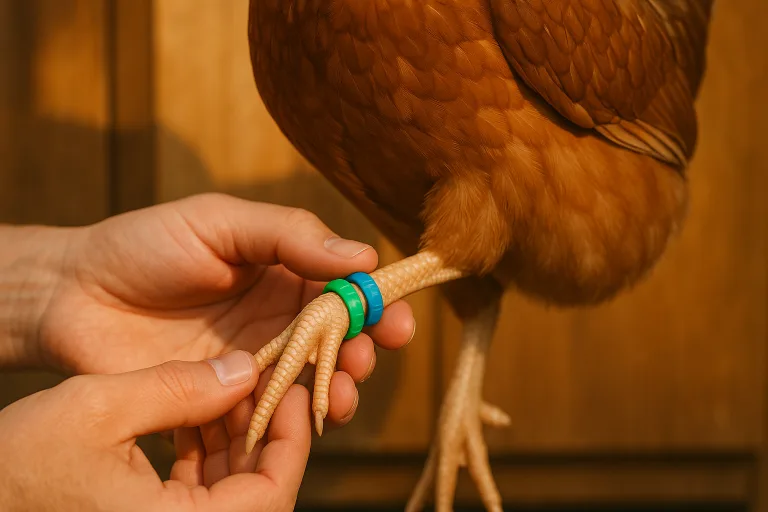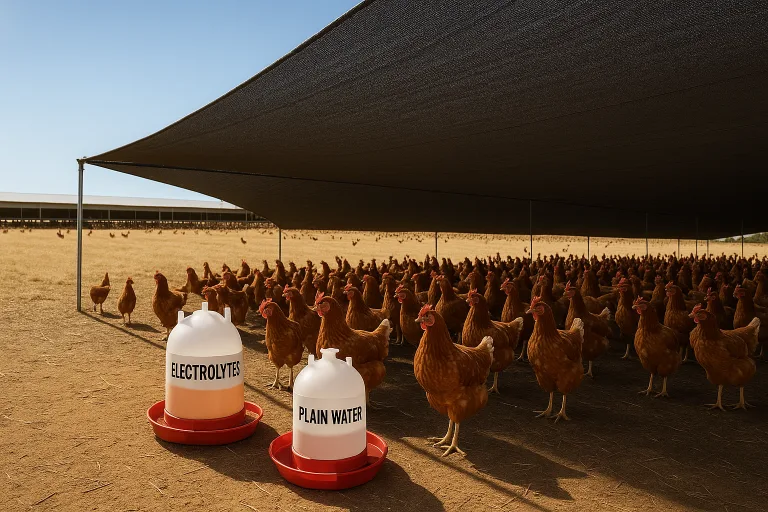Egg Producers Get Relief During Avian Influenza Outbreaks
With the ongoing challenges posed by avian influenza outbreaks, egg producers are eagerly anticipating potential relief in the form of proposed changes to egg labelling rules. These changes seek to address the significant costs and logistical burdens faced by the industry during outbreaks, particularly in relation to the labelling of free-range eggs.
By removing the current derogation period and allowing free-range eggs to be labelled throughout mandatory housing measures, producers would be able to navigate these outbreaks more efficiently. The consultation on these proposed changes presents a crucial opportunity for stakeholders to shape the future of the free-range egg sector, ensuring its long-term viability and competitiveness.
As the industry eagerly awaits the outcome of the consultation, it remains to be seen how these changes will impact egg producers and their ability to navigate avian influenza outbreaks effectively.
Proposed Changes to Egg Labelling Rules
The proposed changes to egg labelling rules aim to alleviate the burden on egg producers during avian influenza outbreaks. This would be achieved by eliminating the need to change egg labels and allowing free-range eggs to be labelled as such throughout mandatory housing measures.
Currently, regulations permit free-range eggs to be labelled as such for 16 weeks during housing measures. However, the proposed amendments would remove this 16-week derogation period. This change would provide industry benefits by reducing the cost implications associated with changing egg packaging to comply with legislation.
This change comes in response to the increasing threat of highly pathogenic avian influenza (HPAI) H5N1. Since October 2021, there have been over 360 cases confirmed in Great Britain. In light of this, the British Egg Industry Council and other industry bodies have campaigned for these changes to support the poultry and egg producers during outbreaks.
The consultation on the proposed changes is open until March 5, 2024. This provides interested parties with an opportunity to provide their input and shape the future of the free-range egg industry.
Impact of Avian Influenza Outbreaks
Avian influenza outbreaks have had significant implications for the egg industry, necessitating an examination of their impact.
These outbreaks have resulted in economic consequences for egg producers, as they face reduced production and increased costs.
The highly contagious nature of avian influenza requires strict biosecurity measures to prevent the spread of the virus. These measures include enhanced sanitation protocols, restricted movement of birds, and increased surveillance.
Implementing these biosecurity measures can be costly for producers, as they require additional resources and labor.
Furthermore, outbreaks can lead to trade restrictions and consumer concerns, affecting market demand and prices.
It is crucial for the industry to effectively manage and mitigate the impact of avian influenza outbreaks to ensure the long-term sustainability of the egg industry.
Government Support and Consultation
The government is actively providing support and engaging in a consultation process to address the challenges faced by the egg industry during avian influenza outbreaks.
The Farming Minister, Mark Spencer, recognizes the pressures that bird flu outbreaks impose on the industry and prioritizes finding ways to support it during disease outbreaks.
To ensure the long-term future of the free-range egg industry, the government has opened a consultation that is open to all interested parties. Stakeholder engagement is crucial in gathering input from various perspectives and shaping the future of the industry.
The British Egg Industry Council strongly supports the consultation, reflecting the importance of collaboration between the government and industry bodies.
This consultation will play a vital role in identifying effective measures to alleviate the impact of avian influenza outbreaks on egg producers.
Importance of the Free-Range Egg Sector
During the ongoing consultation process addressing the challenges faced by the egg industry during avian influenza outbreaks, it is crucial to recognize the significant role played by the free-range egg sector in the UK and its importance to both consumers and farmers.
The majority of eggs produced in the UK meet free-range standards, making the sector an essential part of the British egg industry.
The proposed supportive measures, including the amendment to the egg marketing legislation, aim to ensure the competitiveness of free-range egg farmers.
Aligning the free-range egg marketing rules with European Union regulations not only helps create a level playing field for British producers but also ensures consistency and quality standards in the industry.
Given the unprecedented levels of avian influenza, these changes become even more important for the long-term future and sustainability of the free-range egg sector.
Consultation Details and Timeline
The consultation regarding the proposed changes to egg labelling rules and their impact on avian influenza outbreaks has provided an opportunity for various stakeholders to participate and contribute their views. The consultation, which is open until March 5, 2024, aims to gather input from interested parties to ensure the long-term future of the free-range egg industry.
Participating in the consultation is crucial for shaping the future of the industry and ensuring its competitiveness.
Key details and timeline of the consultation include:
- The consultation is open until March 5, 2024
- Stakeholders are encouraged to share their views on the proposed changes
- The consultation aims to gather input from various stakeholders to inform future industry development
Conclusion
In conclusion, the proposed changes to egg labelling rules have been advocated for by industry bodies to alleviate costs and logistical burdens. The changes aim to allow free-range eggs to be labelled throughout mandatory housing measures during avian influenza outbreaks. This is important because there have been over 360 confirmed cases of avian influenza in Great Britain since October 2021. Addressing the impact of these outbreaks is crucial for the industry.
The ongoing consultation invites stakeholders to shape the future of the free-range egg industry and maintain a level playing field with the European Union.


